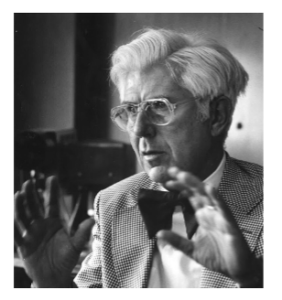
HIGHLIGHTS
Aaron Temkin Beck is widely regarded as the inventor of cognitive behavioral therapy (CBT), a treatment that is still used today in the context of a variety of psychiatric conditions.
Aaron Temkin Beck is widely regarded as the inventor of cognitive behavioral therapy (CBT), a treatment that is still used today in the context of a variety of psychiatric conditions.
Dr. Beck was born in 1921 in Providence, Rhode Island, the son of Jewish immigrants from Ukraine. He graduated magna cum laude from Brown University in 1942 and graduated from Yale Medical School in 1946. During a six-month rotation in psychiatry, Beck became captivated by the study of psychoanalysis. After completing his medical training he became a fellow of psychiatry at the Austen Riggs Center in Stockbridge, Massachusetts, and later, a professor in the Department of Psychiatry at the University of Pennsylvania.
During his early years, Dr. Beck endorsed psychoanalysis, the then-dominant psychotherapeutic model. However, he believed that, for psychoanalysis to reach widespread acceptance in the medical community, it needed to be validated by research. Dr. Beck subsequently began researching the psychoanalysis of depression. To his surprise, his research into patients with depression did not seem to validate the tenets of psychoanalysis.
Dr. Beck’s work with depressed patients led him to develop a new depression model that was focused on underlying negative beliefs relating to loss and failure rather than the psychoanalytic theory that depression is caused by an innate need to suffer. Dr. Beck noticed that his patients expressed spontaneous, negative thoughts about themselves, the world, and the future; Dr. Beck eventually coined these “automatic thoughts.” His therapeutic work with these patients involved helping the patient to interrogate the validity and utility of the automatic thoughts. Dr. Beck found that his patients’ thoughts about a situation influenced their reactions much more than did the situation itself. He worked with his patients to change their thoughts about situations, engage in adaptive behaviors, and address underlying negative beliefs about themselves and others. He called this new therapy “Cognitive Therapy,” which later became known as CBT.
In 1977, the first major clinical trial comparing CBT to antidepressant pharmaceuticals showed that CBT was as effective as medication in treating depression and twice as effective in preventing relapse. After a second trial showed similar results, CBT began to receive increased attention and acceptance.
Dr. Beck researched and utilized CBT with patients suffering from other mood disorders. He developed tools, including the Beck Depression Inventory, the Beck Anxiety Inventory, and the Beck Hopelessness Scale, that he used to identify symptoms of mood disorders and evaluate the efficacy of his CBT treatment.
As a result of Dr. Beck’s pioneering work, CBT has been successfully used in the treatment of patients with a variety of psychiatric diagnoses, including anxiety disorders, substance use, personality disorders, eating disorders, bipolar disorder.
Author: Alexandra J. Olson
